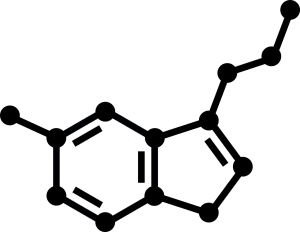Turkey Day is approaching and this year we want you to forget about the effects of tryptophan (that amino acid in turkey that everyone claims makes you sleepy) on your body, or of pumpkin pie on your waistline, and focus on something more important to the season: the effects of thankfulness (hey, it’s right there in the name: Thanksgiving!), or gratitude, on your life, and yes, even your brain.
Sure, this time of year can be stressful or even downright sad for some, but being grateful is one way to lift your spirits, feel connected, and see the goodness in your life – but that’s not all. Gratitude can also help you sleep better, exercise more, and generally be healthier and happier. And that’s not just our opinion: there is research being done on gratitude that is actually proving all of this, and showing us that regularly practicing gratitude can reshape your neural pathways, leading to lasting, positive effects in your life.
The Brain’s Gratitude Cocktail
Before we get into the specific studies proving the neuroscientific benefits of gratitude, let’s take a quick look at what could be driving some of the changes happening in your brain when you get your thankful on. There are two main neurochemicals that get released when we’re feeling grateful:
- Dopamine – Whether you’re feeling grateful about the things that are good in your life, or are expressing gratitude to another person, neural circuitry in your brain will release dopamine. And the great thing about dopamine? Not only does it make you feel good, but it leaves you wanting more, so you’ll be more likely to continue the practices that lead to the release of this chemical. Because of this, you’ll be able to harness the “neuroplasticity” of your brain, meaning you can retrain your brain the more you activate your gratitude circuits.

- Serotonin – When you reflect on the good things in your life, your brain also releases serotonin, also known as the happy molecule. Serotonin enhances our mood, as well as our willpower and motivation, so again, you’ll be more likely to continue on with your gratitude practices once you begin.
The Studies
There are psychologists out there whose life’s work is studying how gratitude affects people and their brains, and they’ve had some very interesting findings. For example, Dr. Robert A. Emmons of the University of California, Davis, and Dr. Michael E. McCullough of the University of Miami, have done a number of studies, including the following two:
- A group of young adults were asked to keep a daily journal of things they were grateful for, while other groups of young adults were asked to write about things that annoyed them or things they felt made them better off than other people. The young adults who kept gratitude journals showed greater increases in determination, attention, enthusiasm, and energy compared to the other groups. This led the researchers to conclude not only that gratitude is beneficial to the brain, but that gratitude is more than just realizing that you have it better than other people – you have to actively engage in feeling appreciation for what you have in your life.
- A group of adults of mixed ages were asked to keep a weekly journal about things they were grateful for that week, while two other groups wrote about either things that had displeased them, or just what had happened to them that week, with no emphasis on whether they were positive or negative. Those who kept the gratitude journals were not only more optimistic and positive at the end of 10 weeks, but surprisingly, they had also exercised more, had needed fewer trips to the doctor, and had experienced fewer aches and pains.
Emmons and McCullough aren’t the only ones who have found proof of the power of gratitude: a few different researchers have done studies using gratitude letters and have found similarly powerful results. For example:
- Dr. Martin E. P. Seligman, a psychologist at the University of Pennsylvania, had 411 participants write and personally deliver letters of gratitude to someone who had never been properly thanked for their kindness. The participants immediately exhibited a huge increase in happiness scores, especially when compared with the impacts of other types of activities assigned to them. Not only that, but the benefits lasted for at least a month beyond the study.
- Researchers at Berkeley found that when 300 participants, many of whom were seeking mental health treatment, wrote gratitude letters, they reported significantly better mental health 4 weeks and 12 weeks after their writing exercise ended when compared with the participants who wrote about negative experiences or only received counseling.

Perhaps most interestingly, three months after the study, the researchers gave the participants an fMRI after putting them in a situation in which they would feel grateful, and compared the brains of the participants with others who hadn’t written the letters. When they did, they found that the gratitude letter writers showed greater activation in the medial prefrontal cortex (which deals with memory and decision making). They concluded that simply expressing gratitude may have lasting effects on the brain.
Other studies have also found that there are positive physical effects of gratitude. For example, a Chinese study found that higher levels of gratitude were not only associated with less anxiety and depression, but also better sleep. And why all of these positive physical and emotional benefits? Well, when researchers at the National Institutes of Health (NIH) examined blood flow in various brain regions while subjects were feeling gratitude, they found that subjects who showed more gratitude overall had higher levels of activity in the hypothalamus.
Why is that important? Because the hypothalamus controls a whole lot of essential bodily functions, including eating, drinking and sleeping, and has a huge influence on your metabolism and stress levels, so it makes sense that feeling more gratitude could have such wide-ranging effects like increased exercise, improved sleep, decreased depression, and fewer aches and pains.
Adding More Gratitude Into Your Life
It turns out there is a lot to be thankful for when it comes to, well, feeling thankful. So how can you add more gratitude into your life all year round, and not just when you’re carving the turkey and spooning the whipped cream onto your pumpkin pie? Well, you can try some of the following strategies – and don’t worry if it feels a little forced at first: your brain will get the hang of it (as has been proven!), and it’ll begin to come more naturally to you.
- Write a thank-you note (or 2 or 3!) – While it’s ok – and totally encouraged – to write them to yourself, be sure to send the ones you write to others, or better yet: hand deliver them. Try to send at least one a month and be as clear and open as possible about how that person has impacted your life, even if it’s in little ways.
- Keep a gratitude journal – We’ve already pointed out that many studies showing the powerful impact gratitude can have on your life have utilized gratitude journals, so it might be a good idea for you to keep one yourself. Try writing in it daily if you can, but add to it at least weekly so you can get the full benefits.

- Meditate – Take time out of your day to meditate mindfully, and focus on the present moment, including what you are grateful for right then.
- Inspire gratitude in others – Try to include at least one act of kindness in your life each day, or volunteer in your community
- Always say thank you – Don’t just thank the most important people in your life for the biggest things; also remember to thank everyone around you for even the little things they do. And when you do this, stop first to really think about what it is you’re thanking them for.
As Thanksgiving rolls around again, don’t let this time of year pass by with you simply going through the motions of feeling grateful for the good things in life. After all, research now tells us that once you let your brain find things to be grateful for, it’ll start looking for more and more things to be grateful for – so take this time to really focus on what you’re thankful for. That way, you’ll release that cocktail of feel-good chemicals, start to rewire your brain in a more positive way, and get yourself on a path to greater health and happiness (and you might just make those around you feel good in the process, too)!
